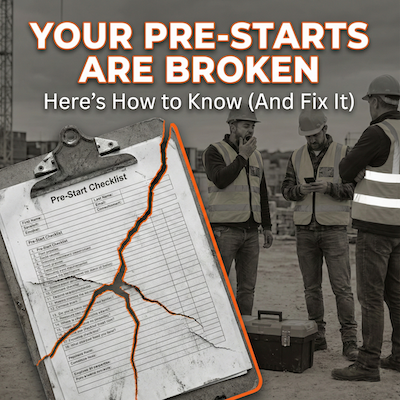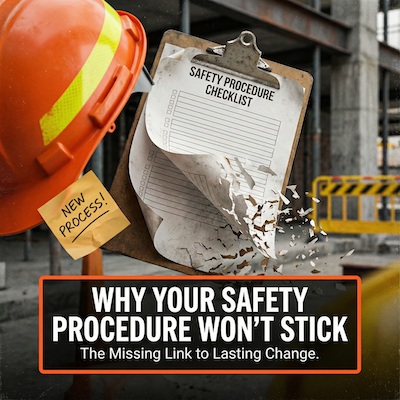In a recent podcast we had the privilege of sitting down with Tamara Jonson, a seasoned safety professional with a wealth of experience in the construction industry. Tamara heads safety at one of Australia's largest and most respected builders: Sydney-based Richard Crookes Constructions. Throughout the conversation, Tamara shared her insights on the evolution of safety practices, the importance of positive reinforcement, and the challenges of the "zero harm" approach. Her unique perspective, shaped by her early experiences and her journey as a female leader in a male-dominated industry, offers valuable lessons for anyone looking to improve safety culture in their organisation.
The Power of Positive Reinforcement
Tamara's passion for safety was influenced by her father, who taught her the importance of recognising and rewarding good behaviour. She shared several examples from her own experience where positive reinforcement has been effective in improving safety culture. One particularly powerful anecdote involved a subcontractor who, after being brought in for a conversation about a series of near misses, opened up about the personal and technical issues that were contributing to the problem. By creating a safe, non-judgmental space for dialogue, Tamara and her team were able to work with the subcontractor to develop a plan for improvement.
Tamara also highlighted the potential of tools like Scratchie, which can help companies systematically implement positive reinforcement strategies. By providing a tangible way to recognise and reward safe behaviours, these tools can help shift the focus from punishment to encouragement, fostering a more positive safety culture.

Challenging the "Zero Harm" Approach
While the concept of "zero harm" is prevalent in the construction industry, Tamara argued that it can have unintended consequences. She described how the pressure to maintain a perfect safety record can lead to underreporting of incidents and a culture of fear, where workers are afraid to speak up about potential hazards.
Instead, Tamara advocated for creating a transparent reporting culture, where near misses and minor incidents are seen as opportunities for learning and improvement. By encouraging open communication and addressing the root causes of incidents, companies can prevent more serious accidents from occurring.

The Evolution of Safety Leadership
As a female safety leader in a traditionally male-dominated industry, Tamara has witnessed firsthand the evolution of safety leadership. She described the shift from a compliance-focused, punitive approach to a more holistic, people-centric approach that recognises the importance of building trust and fostering open communication.
Tamara shared examples of effective leadership styles, such as the project manager who never raised his voice but instead relied on clear communication and thorough planning to ensure safety on site. She also emphasised the importance of vulnerability and empathy, arguing that leaders who are willing to show they care about their workers' well-being are more likely to create a positive safety culture.
Redefining Safety: A Vision for the Future:
Looking to the future, Tamara envisions a construction industry where safety is fully integrated into operational roles, with safety professionals serving as coaches and cultural leaders. She dreams of a day when her own children can work on a construction site and not only be physically safe but also mentally and emotionally supported.
To achieve this vision, Tamara believes that the industry needs to move away from a narrow focus on compliance and instead embrace a more holistic approach that prioritises people's well-being. This means creating a work environment that supports mental health, values diversity, and rewards individuals for their unique strengths.

Conclusion
Tamara Jonson's insights offer a compelling case for rethinking safety in the construction industry. By embracing positive reinforcement, challenging outdated approaches, and prioritising people's well-being, companies can create a safer, more supportive work environment for all. We encourage all industry leaders to listen to the full podcast and reflect on how they can apply these lessons in their own organisations. Together, we can build a future where safety is not just a priority, but a fundamental part of how we work.










.svg)
